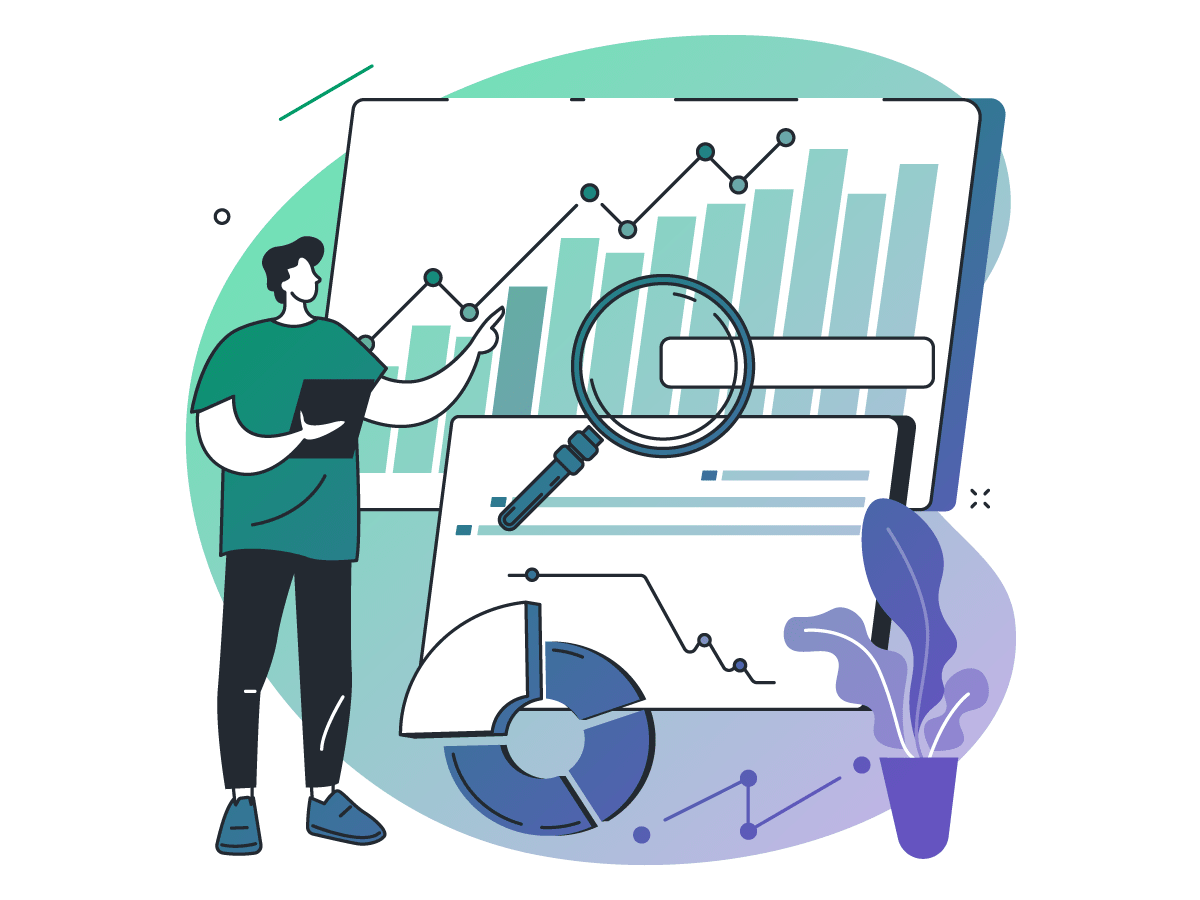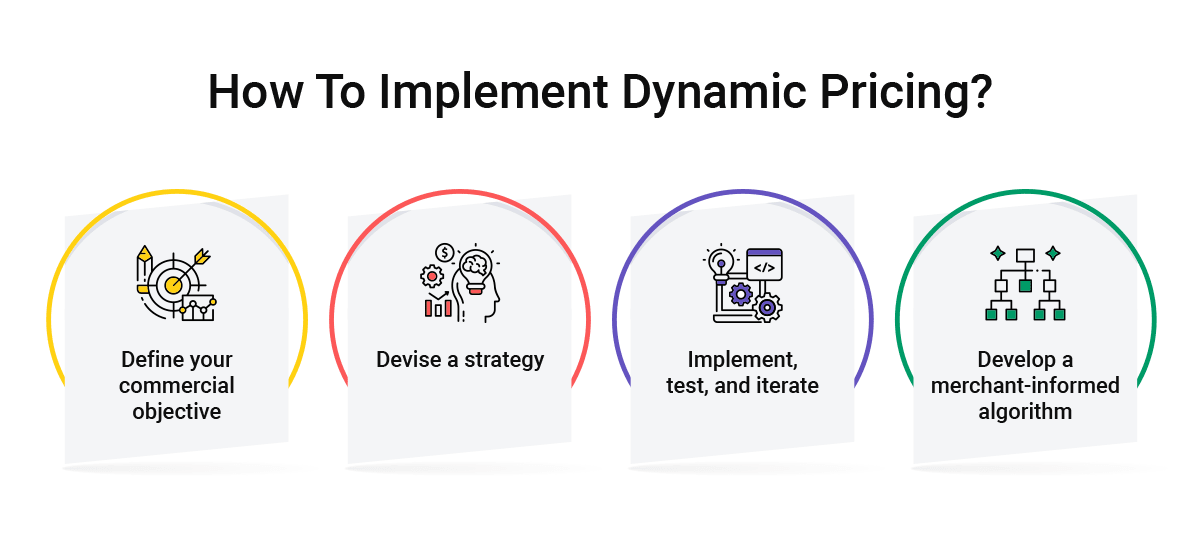Everyone can relate to this scenario: You're looking at airline tickets for that vacation to Dubai, and the price seems good. But before booking, check with your travel companion. When you return just an hour later, the price has changed—typically higher. This familiar experience demonstrates dynamic pricing, a practice prevalent in the travel industry for years that has now expanded to sporting events, concerts, theater tickets, and other entertainment venues.
In competitive markets, mastering sophisticated pricing strategies directly impacts bottom-line results. Two critical approaches that often get confused are revenue management and dynamic pricing. While they appear similar at first glance, they serve different purposes and apply to distinct contexts.
After years of partnering with event ticketing companies and entertainment venues, Softjourn has witnessed firsthand how sophisticated pricing strategies can transform business outcomes. From helping startups optimize their first concert series to supporting established venues maximize revenue during peak seasons, we've seen the dramatic impact that strategic pricing decisions have on both profitability and customer satisfaction.
This article breaks down the key differences between dynamic pricing and revenue management, exploring their definitions, applications, and which industries benefit most from each approach.
Understanding Revenue Management
Revenue management is a strategic approach that maximizes revenue through consumer behavior analysis. It optimizes pricing and inventory to sell the right product to the right customer at the right time, especially in industries with perishable products like airlines and hotels. Through advanced analytics, businesses enhance both profitability and customer satisfaction.
Companies that effectively implement revenue management gain a competitive edge by reacting swiftly to market changes and consumer trends. The integration of machine learning and sophisticated algorithms has transformed this practice, enabling businesses to refine their pricing models with greater precision. As consumer behavior evolves, mastering revenue management becomes essential for sustainable growth.
The Core Principles of Revenue Management
At its core, revenue management relies on several key principles:
- Demand Forecasting: Predicting future demand is essential for effective revenue management. Businesses analyze historical data and market trends using statistical modeling to anticipate demand fluctuations. For example, airlines typically forecast booking patterns 3-6 months in advance with weekly adjustments as the departure date approaches.
- Segmentation: Different customer segments have varying willingness to pay (price sensitivity) based on factors like purchase timing, loyalty status, and demographic characteristics. Revenue managers identify these segments and adapt pricing accordingly. A luxury hotel might charge corporate clients standard rates Monday-Thursday while offering 30% discounts to leisure travelers on weekends.
- Capacity Management: Optimizing available inventory prevents overbooking or underbooking resources. For cruise lines, this means balancing cabin inventory across different price points to maximize occupancy while capturing premium pricing from early bookers.
Applications of Revenue Management
Revenue management is widely used across various industries, including:
- Hospitality: Hotels use revenue management to adjust room rates based on demand fluctuations, events, and seasonality. For example, a business hotel might increase rates by 40% during major conferences while offering 25% discounts during traditional low seasons. For example, during the 2024 Paris Olympics, hotel prices were reported to be more than three-and-a-half times the usual summer rates, indicating increases exceeding 250%.
- Aviation: Airlines employ revenue management techniques to optimize ticket prices based on booking patterns and seat availability. A typical domestic flight might have 15-20 different fare classes, with prices increasing 5-15% as the plane fills and the departure date approaches.
- Car Rentals: Rental companies adjust prices based on demand, season, and local events. During the 2024 Olympics, rental companies in Paris increased rates by up to 300% while simultaneously offering discounts in nearby cities to balance their fleet utilization.
Exploring Dynamic Pricing
Dynamic pricing refers to a flexible pricing strategy where prices adjust in real-time based on market data, demand fluctuations, and competitive factors. This approach allows businesses to respond immediately to market changes and optimize pricing accordingly. By leveraging data analytics and consumer insights, companies create tailored pricing that maximizes profits while enhancing customer satisfaction through competitive offers.
Key Characteristics of Dynamic Pricing
Dynamic pricing is characterized by several defining features:
- Real-Time Adjustments: Prices change frequently, sometimes multiple times per hour, based on current market conditions and algorithms that process thousands of data points simultaneously.
- Algorithm-Driven: Sophisticated machine learning algorithms analyze transaction data, competitor pricing, inventory levels, and even weather patterns to determine right price in real-time.
- Competitive Response: Dynamic pricing systems can detect competitor price changes within minutes and automatically adjust to maintain market position, ensuring businesses remain competitive.
Additionally, the dynamic pricing model often incorporates customer behavior tracking, allowing businesses to make data-driven decisions based on individual profiles. E-commerce sites might offer first-time visitors a 10% discount while showing slightly higher prices to customers who have abandoned carts previously. This personalized approach drives conversion and fosters loyalty by making customers feel they're receiving special consideration.

Industries Leveraging Dynamic Pricing
Dynamic pricing is particularly prevalent in industries where prices can fluctuate based on immediate demand and competition:
- E-commerce: According to Smartproxy's analysis, the top five e-commerce platforms in the United States and Canada with the most frequent price changes are Amazon.com, Walmart.ca, Amazon.ca, Wayfair.com, and BestBuy.com. These platforms employ various pricing practices, adjusting product prices multiple times daily based on factors such as demand, competition, and market conditions. Amazon.com leads with an average of 12.6 price changes per day, utilizing advanced algorithms to monitor competitor prices and inventory levels. Walmart.ca follows with seven price changes per day, frequently adjusting prices to remain competitive. Amazon.ca, Wayfair.com, and BestBuy.com also implement real-time pricing adjustments to optimize profitability and enhance customer experience.
- Travel and Tourism: Booking platforms for flights and accommodations adapt dynamic pricing that can change rates by 15-40% within a single day based on search volume and booking patterns.
- Ride-Sharing Services: Companies like Uber and Lyft use "surge pricing" to increase fares by 1.8x to 5x during peak demand periods in specific neighborhoods, balancing driver supply with rider demand in real-time.
- Event Ticketing: Promoters and venues implement dynamic pricing for concerts, sports events, and theater performances, adjusting prices based on demand patterns, remaining inventory, and proximity to the event date. Major sports leagues now regularly employ dynamic models that can increase high-demand game prices by 30-80% compared to similar seating for less popular matchups. Major league sports teams now use dynamic pricing that adjusts ticket costs based on opponent popularity and real-time based on factors like weather forecasts and team performance, resulting in 20-60% price variations for the same seat across different games.
Key Differences Between Revenue Management and Dynamic Pricing
While both revenue management and dynamic pricing aim to maximize revenue, they differ in their approaches, methodologies, and applications. Understanding these differences helps businesses implement the most effective pricing strategy for their needs.
Approach and Strategy
The primary distinction lies in the approach each strategy takes:
- Revenue Management: Focuses on long-term strategies through predicting and planning cycles that typically span weeks or months. It analyzes customer behavior patterns over extended periods to develop pricing tiers and inventory controls.
- Dynamic Pricing: Centers around immediate market conditions with real-time adjustments, sometimes occurring within minutes. It reacts to current demand signals, competitor movements, and short-term opportunities.

Data Utilization
Data plays a pivotal role in both strategies, but the type and application of data differ:
- Revenue Management: Relies heavily on previous data spanning seasons or years, with forecasting models that identify patterns and predict future behavior. Airlines might analyze 2-3 years of booking data to establish baseline demand patterns.
- Dynamic Pricing: Utilizes real-time data streams from multiple sources, including competitor pricing APIs, current website traffic, and immediate inventory status to make instantaneous pricing decisions.
Timeframe of Implementation
The timeframe for implementing strategies also varies significantly:
- Revenue Management: Typically involves planning horizons of weeks or months, with pricing practices established through scheduled reviews and periodic adjustments. Hotel revenue managers often set basic pricing and KPIs quarterly with weekly refinements.
- Dynamic Pricing: Operates in a timeframe of minutes or hours, with continuous algorithmic adjustments responding to real-time market conditions. E-commerce platforms might adjust prices every 15 minutes during promotional events.
Industry Applications
Different industries leverage these strategies in unique ways, reflecting their specific operational needs:
- Revenue Management: Commonly used in industries with fixed capacity and advance booking patterns, such as airlines, hotels, and event venues. These businesses typically sell the same inventory through various price points over time, maximizing yield through careful allocation.
- Dynamic Pricing: Frequently employed in environments with immediate purchase decisions and direct competitive comparisons, such as e-commerce platforms, ride-sharing, and online ticketing. For instance, a concert promoter might raise ticket prices by 25% when sales velocity exceeds projections, capitalizing on unexpected demand.
Customer Perception
The way customers perceive pricing practices differs significantly:
- Revenue Management: Often viewed as a more predictable approach, where customers expect general price ranges based on timing and demand patterns. Hotel guests typically understand that booking further in advance or during off-seasons results in better rates.
- Dynamic Pricing: Can create more noticeable price variations for consumers, sometimes leading to frustration when prices change between shopping sessions. Studies show that 65% of customers notice dynamic price changes, with 38% reporting negative sentiments when discovering they paid more than others for identical products. For instance, a 2023 survey found that 52% of consumers equate dynamic pricing with price gouging, and 42% would order less often from restaurants adopting such models.
When to Consider Implementing Revenue Management
Several business situations might signal it's time to evaluate your strategies:
- Venue Expansion: If you've recently increased capacity and struggle to fill seats, or if you're considering expansion and want to optimize ticket sales
- Last-Minute Sales Pattern: Events where tickets are predominantly purchased the day before or day of the event
- Seasonal Fluctuations: Significant attendance variations throughout the year that affect revenue predictability
- New Competition: Market entry of competing venues or entertainment options
- Customer Price Sensitivity: Customer feedback or data showing price as a major factor in purchase decisions
Challenges and Considerations
Both revenue management and dynamic pricing present unique challenges that businesses must navigate effectively.
Challenges of Revenue Management
Implementing revenue management requires addressing several key issues:
- Data Quality: Forecasting accuracy depends entirely on data integrity. Incomplete or inaccurate historical data can lead to pricing mistakes costing 4-7% in potential revenue.
- Market Disruptions: Unexpected events (like pandemic travel restrictions) can render historical forecasts irrelevant, requiring rapid model adjustments and establishing new baselines.
- System Integration: Revenue management systems must communicate seamlessly with reservation and distribution platforms, with integration failures causing pricing inconsistencies across channels.
- Multi-Party Coordination: For many venues, implementing new pricing practices requires buy-in from multiple stakeholders—promoters, artists, sports leagues, and venue ownership groups. Aligning these diverse interests can be challenging, especially when revenue-sharing agreements are involved.
- Simulating New Events: While baseball teams can predict attendance based on opponent popularity and standings, forecasting demand for new performers or productions poses significant challenges without historical data.
Implementation also requires significant cross-departmental collaboration, as revenue management decisions simultaneously impact sales, marketing, and operations teams. Companies often underestimate the change management aspects, with successful implementation requiring executive sponsorship and clear communication about strategic objectives.

Challenges of Dynamic Pricing
Dynamic pricing presents its own set of challenges:
- Customer Trust: Frequent price changes can erode customer confidence, with 72% of consumers in a 2023 retail study reporting they would abandon a retailer if they felt pricing was unpredictable or unfair. A 2023 study highlighted that 63% of consumers felt dynamic pricing made it harder to budget their spending on restaurants, and 65% said it complicated decisions on where and when to eat.
- Algorithm Monitoring: Pricing algorithms require constant supervision to prevent unintended consequences, such as entering destructive price wars or creating discriminatory pricing patterns.
- Technical Requirements: Implementing effective data-driven pricing demands robust technical infrastructure to process real-time data and execute immediate price changes across all sales channels.
Businesses must also navigate the regulatory landscape carefully, as pricing practices face increasing scrutiny from consumer protection agencies. Price discrimination based on demographic factors can violate regulations in certain markets, requiring sophisticated compliance frameworks and regular algorithmic audits.
Ethical Considerations in Pricing Strategy
When implementing advanced pricing, businesses should address the following ethical considerations:
Transparency: Clearly communicate how and why prices may vary to build customer trust. For example, airlines have successfully implemented "fare calendars" showing price variations across different dates, helping customers make informed decisions.
Fairness Perception: Ensure pricing variations are tied to clear value differentials. Disney's theme park pricing successfully couples higher prices during peak periods with the value proposition of better experiences and shorter wait times.
Privacy Concerns: Be explicit about what customer data is collected and how it informs personalized pricing. Transparency in data usage policies can prevent customer backlash and regulatory issues.
Avoid Discrimination: Ensure algorithms don't inadvertently create pricing patterns that disadvantage protected groups. Regular algorithmic audits can identify and prevent potentially discriminatory pricing practices.
Common Questions About Revenue Management and Dynamic Pricing
Q: How much historical data do we need to get started?
A: Revenue data is definitely needed, but you don't need years of history. Even data from the past year is enough to begin analysis and implementation. The quality of data is often more important than quantity.
Q: How does dynamic pricing affect customer perception?
A: Altering the face value of tickets can create customer concerns. Strategic implementation is key. For example, if you always change prices on Fridays, customers may learn to avoid purchasing until after price adjustments. A transparent approach with clear value communication helps maintain customer trust.
Q: Can we implement these strategies with limited technical resources?
A: Yes, though the sophistication of your approach may vary. Even basic revenue management can be implemented with spreadsheets and manual analysis, while more advanced approaches benefit from dedicated software solutions.
Q: Is this a one-time project or ongoing process?
A: Revenue management is definitely not a one-time activity. It's an ongoing process requiring continuous monitoring, analysis, and adjustment. Many organizations develop or acquire dashboard tools for ongoing management.
Conclusion: Choosing the Right Strategy
Revenue management and dynamic pricing both offer powerful approaches to maximize revenue, but they serve different purposes and fit different business contexts. Revenue management excels in environments with fixed capacity and advance booking patterns, focusing on long-term optimization through forecasting. Dynamic pricing thrives in markets with immediate purchase decisions and direct competitive comparisons, emphasizing real-time responsiveness.
The most successful businesses often implement hybrid approaches tailored to their specific industry and customer expectations. For example, hotels might employ revenue management for their room inventory while using dynamic pricing for ancillary services like spa treatments or dining.
When selecting between these strategies, consider:
- Your industry's purchase cycle and booking windows
- Your customers' price sensitivity and expectations
- Your technical capabilities for data processing and price updates
- Your competitive landscape and market position
- The number of stakeholders involved in pricing decisions
- Your ability to forecast demand for upcoming events
By understanding the fundamental differences, you can implement the right approach to increase profitability while maintaining customer satisfaction and loyalty in an increasingly competitive marketplace. For most organizations, the journey begins with thorough assessment of current pricing practices, followed by phased implementation that delivers measurable results at each stage.

Revenue Management Tools and Solutions
Effective revenue management isn't just about strategy—it's also about having the right tools for monitoring, analysis, and decision-making. Depending on your organization type, different solutions may be appropriate:
For Venues:
- Interactive Dashboards: Real-time visualization of pricing changes and their impact on revenue
- Sales Analysis Tools: Break down performance by location, time, and ticket type
- Forecasting Models: Develop better sales expectations with predictive analytics
For Venue Owners and Producers:
- Mobile Alerts: Receive notifications when events reach break-even points
- Revenue Tracking: Mobile applications with charting capabilities to monitor performance across venues and events
- Scenario Planning: Tools to model different pricing strategies before implementation
For Ticketing Service Providers:
- Integrated Analytics: Add capabilities to your ticketing platform that enable venue customers to optimize their pricing
- Customer Segmentation: Tools to identify and target different ticket types and customer groups with appropriate pricing
- API Connections: Seamless integration with venues' existing systems and third-party data sources
As the complexity of pricing strategies continues to increase, expert guidance becomes essential for implementation success. Softjourn, with over two decades of experience in IT consulting and custom software development, provides specialized solutions for pricing optimization across finance, media & entertainment, and ticketing industries.
Our team of experts can develop custom pricing algorithms, integration frameworks, and analytics dashboards tailored to your specific business needs.
Contact us today for a personalized pricing strategy assessment and discover how our tailored solutions can increase your revenue.
Updates on Dynamic Pricing:
Live Music Fans Voice Concerns Over Dynamic Pricing
A recent Music Fans' Voice survey commissioned by local authorities across eight UK cities revealed significant opposition among live music fans to dynamic pricing practices:
- 91% of respondents believe dynamic or surge pricing for tickets should be illegal in the UK.
- 82% opposed dynamic pricing even when terms are clearly communicated.
- Respondents cited concerns over unfair pricing practices and high-pressure sales tactics, suggesting dynamic pricing creates unnecessary financial stress and urgency.
Despite its revenue-generating potential, this data highlights the importance for event organizers and ticketing platforms to carefully consider consumer sentiment and transparency when adopting dynamic pricing strategies.
[Source: Music Fans’ Voice, April 2025]












